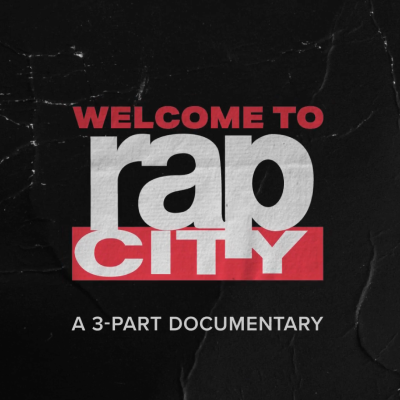
It’s been 10 years since James “J-Dilla” Yancey died on February 10, 2006 at the age of 32. I have written about him many, many times since. However, my initial reaction to his death remains my most honest and personal Dilla piece. So in honor of his impact on my life, I’ve decided to re-post my piece on what would have been his 42nd birthday.
I originally wrote my memorial for freerap.blogspot.com, which I maintained from 2005-2006. The blog no longer exists on the web, but you can view a December 2, 2006 snapshot on the Internet Archive. When I launched a second and more ambitious website, plugonemag.com, I re-posted that item along with a fresh introduction on February 6, 2007.
Now that my focus is Critical Minded, my first tribute to J-Dilla deserves placement here.
—-
Two hours ago, an alert email from allhiphop.com landed in my Inbox, announcing that James “Jay Dee” Yancey passed away this morning. I’ve been bouncing around the web since, looking for community.
Back in 1999, Q-Tip called Slum Village the inheritors of A Tribe Called Quest’s legacy. His claim led to intense debate among hip-hop heads. How could he compare the indelible Tribe to a Detroit trio that didn’t even know how to rap? Slum Village — Jay Dee, Baatin, and T-3 — weren’t lyricists, per se. Instead, they improvised hooks, or scatted, over Jay Dee’s beats. I used to call it “scat rap” with some derision.
But now, almost a decade later, Q-Tip’s premonition rings true. There are only a handful of producers who defined the post-Tribe evolution of soulful underground hip-hop: Premier (particularly his Moment of Truth years), the Roots collective (Questlove, Scott Storch, James Poyser, and others), and Jay Dee.
Meanwhile, Fantastic Vol. 2, Slum Village’s first widely available and best known album, is considered a hip-hop classic. I’ve always had trouble with that term, mainly because it’s often applied to albums that, while bearing sonic traits that influence other artists, may not necessarily possess enough consistently great songs/themes/ideas to earn that distinction. (Lil Kim’s Hardcore and NWA’s efil4zaggaN, anyone?) Fantastic Vol. 2 isn’t one of the greatest albums of all time, but it is a very good one that has only grown in stature since its June 2000 release.
Jay Dee’s musical legacy is a complicated one. He first gained renown by producing some classic numbers for the Pharcyde (”Runnin’ Away”) and De La Soul (”Stakes Is High”), then apprenticed with Tribe, forming the Ummah production team with Q-Tip and Ali Shaheed Muhammad.
In 1996, Slum Village independently released a CD, Fantastic, that snagged them a deal with Interscope. Then, famously, the label dropped the group just before the release of Fantastic Vol. 2. The relationship yielded only one commercially-released record, the graceful “Get Dis Money” for the Office Space soundtrack. (Panda One eventually issued it on his Good Vibe label.) In 2000, Jay Dee and the Roots masterminded Common’s Like Water for Chocolate breakthrough. Jay Dee also produced one of my favorite 12-inch singles ever, Phat Kat’s “Dedication to the Suckers b/w Don’t Nobody Care About Us.”
The years following Jay Dee’s 2000 MVP year brought mixed efforts. He announced that he was leaving Slum Village, then seemingly changed his mind, saying that he was only going to produce the group. He issued a solo album, Welcome 2 Detroit, which crystallized his contradictions: the sensitive beat junkie with the same jones for thugging it out and fucking hoes that seemingly every rapper has. Some artists have embodied those opposing fantasies with aplomb, but to me Jay Dee expressed them uncomfortably, partly out of his own deficiencies as a rapper.
I have heard rumors that Jay Dee was difficult to work with, not because he was an egotistical asshole, but because he was flaky and difficult to pin down. In light of his history of medical problems, which he didn’t publicly reveal until recently (notably in a cover story for URB magazine trumpeting his Jaylib project with Madlib) such allegations (which came from reputable sources) are a poignant reminder that there are usually legitimate reasons behind anyone’s behavior, no matter how bizarre or antisocial that person’s actions may be.
Some of my favorite late-period Jay Dee records include his “Fuck the Police” single, his blazing remix of Four Tet’s “As Serious As Your Life,” the incredibly sad “Do You” track on Slum Village’s Detroit Deli, his joints on Common’s Be album, and the recent instrumental opus Donuts which, ironically, just hit stores last Tuesday. Until he passed away this morning, his long-delayed solo album The Shining was scheduled to hit the streets via BBE in June. It may now be his swan song.
One of my favorite hip-hop memories took place over five years ago at 111 Minna Gallery in San Francisco. I lived in Sacramento at the time, but often drove down to SF to network and go to nightclubs. That night, I went to go see Peanut Butter Wolf. Other DJs spun that night, too, but I can’t remember their names.
At one point, PB Wolf dropped this amazingly soulful record on the decks. It was this heavenly epiphany so indescribable, I couldn’t believe I was hearing it. It had an eerie, haunting vocal — “don’t let yourself go fall in love/…things you do” — that sounded like a reverie. After PB Wolf’s set ended, I asked him what the name of the record was. He told me it was “Fall In Love” by Slum Village.
Peace to the Stones Throw family.
Photo by B+.
Originally published on criticalminded.com.
Humthrush.com will always be free to read and enjoy. If you like my work, leave a tip at Ko-fi.com/humthrush.


